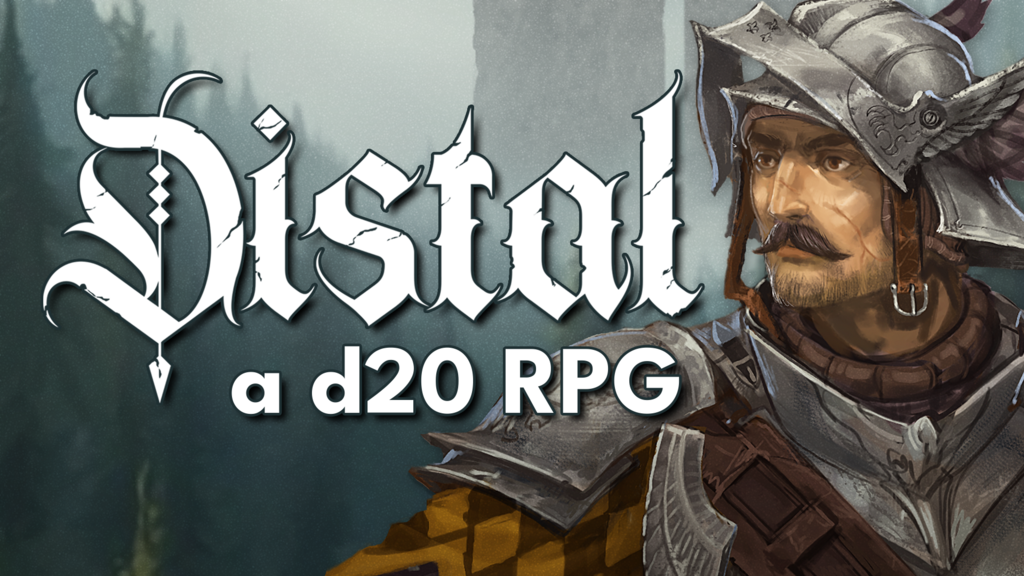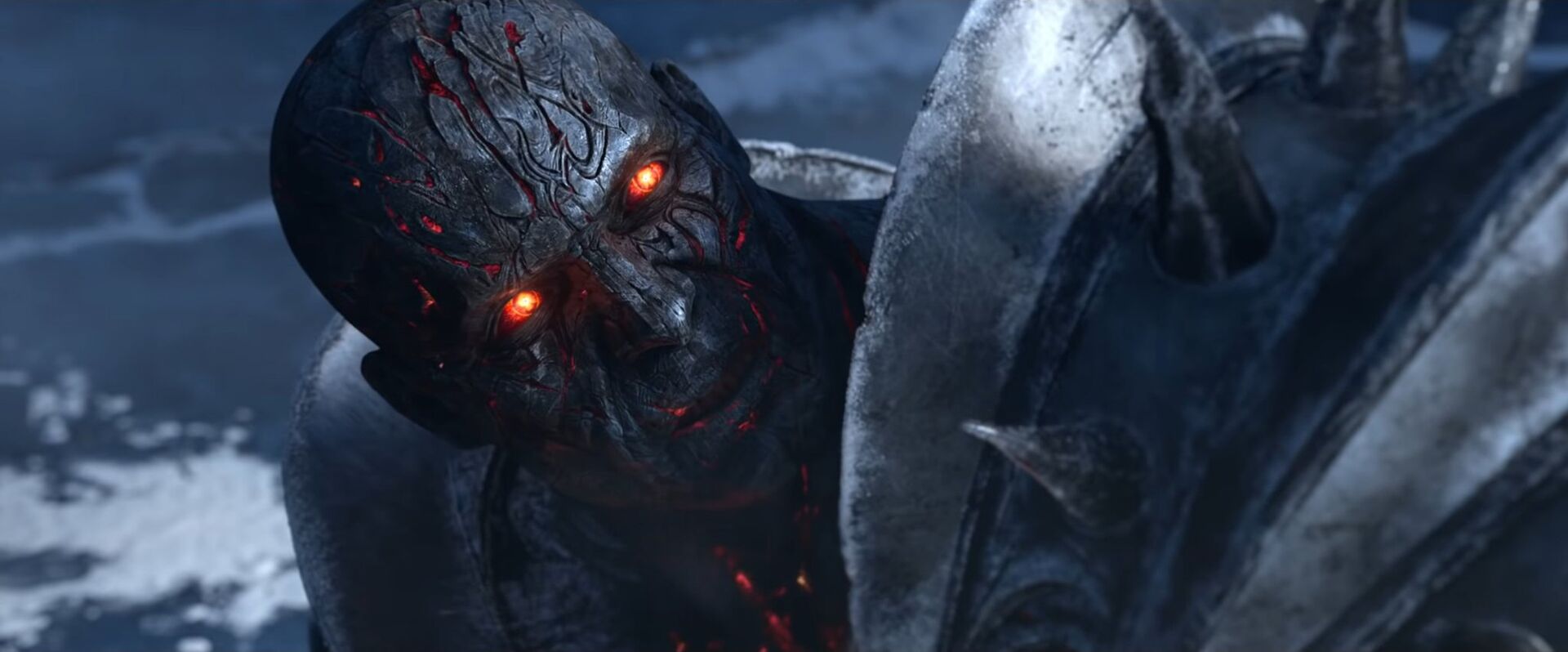How Distal is built to consider the real humans at your table. A TED talk. Kind of. (Distal)
7 months ago
– Sat, May 11, 2024 at 10:11:05 AM
One of the biggest differences between video games, and tabletop roleplaying games, is the social layer on top. Yet... most TTRPGs (even the most popular ones) don't consider it when designing the game.
We designers often forget that: Rulesets don't live in a vacuum.
For background -- I was in the video games industry for 7 years prior to this, running a team of 20, and continuing development of a 10+ year old MMOFPS that had tens of thousands of players logging in every month, and made millions of dollars every year.
That game, PlanetSide 2, was pretty atypical. There was a goal to the game, loosely... an infinite battle where one of three competing factions would conquer a continent (temporarily) before fighting on the next one. But it was mostly a sandbox, where players would gravitate toward a niche they were proficient in (like driving tanks, flying planes, constructing buildings, or playing infantry) and find a way to make the game fun for themselves.
The thing is, that due to the breadth of different playstyles, and loose objectives of the game, you had a lot of conflicting demands from the community. Any update to the game would ultimately come at the cost to someone's fun in one of those niche spaces.
Now consider the world's most popular roleplaying game, Dungeons & Dragons.
There are as many different ways to play the game as there are people in the world, because each table dynamic is different. It can be rough going to find folks that are on the same wavelength as you, and also want the same things out of the game as you do.
The culture factors into it a lot as well.
Consider the way Gary Gygax played the game 50 years ago, where rulings over rules prevailed (due in part to a lack of existing rules;) to how it's been played since the early 2000s with the invention of Session Zero (and rise of the rules lawyer;) to the even more recent introduction of modern safety tools, and influence media has had on the audience (think Critical Role and Stranger Things.)

Beyond some loose advice in the DMG and PHB and lot of optional rules -- there isn't one "correct" way to play the game. And that's great! It's part of why D&D is the amazing game it is today.
However, D&D hasn't made it any easier to decide how to play the game at your table, either.
The process of finding the "right" people and what they want from a game will most often fall to the GM... and even then -- folks may not know what they want until they start playing, GM included. This can create unnecessary friction at the table, and dissatisfying games (or characters) that feel more like work than play.
If you can get everyone on the same page, right from the start, the more likely you'll be to find success. That's one of Distal's super powers...
We've designed it with the social layer in mind.
During character creation, the background system ensures you will be working with your GM to ensure that your backstory, your contacts, and other character features all come into play, because they are literal game mechanics for you and the GM to grab hold of.
During Session Zero you will be working with the other players at your table, to develop an organization, which helps determine the themes of the game, helps show the GM what you're interested in doing, and is an actual team building exercise that helps you and the GM feel out the player dynamics at the table.
These are just two easy-to-grasp examples... but much of the design of Distal considers your table dynamic, from start to finish, in an effort to set the right expectations.
It's visible in the aspects of the game we emphasize, how we design our character sheets, how you enter initiative, how you progress your character, and every step along the way.
In a game as broad as Distal (or Dungeons & Dragons,) knowing what your players want, and how you can all help each other have fun -- is gold.
If you want to hear more about the game, right from the horse's mouth -- I sat down with the folks at Role Wise recently to talk about it. It was a great interview that I think you'll enjoy a lot, if you're a fan of the TTRPG space as a whole.
Click here to watch.

Let me know what you think! Thanks, folks!
-Wrel
We designers often forget that: Rulesets don't live in a vacuum.
For background -- I was in the video games industry for 7 years prior to this, running a team of 20, and continuing development of a 10+ year old MMOFPS that had tens of thousands of players logging in every month, and made millions of dollars every year.
That game, PlanetSide 2, was pretty atypical. There was a goal to the game, loosely... an infinite battle where one of three competing factions would conquer a continent (temporarily) before fighting on the next one. But it was mostly a sandbox, where players would gravitate toward a niche they were proficient in (like driving tanks, flying planes, constructing buildings, or playing infantry) and find a way to make the game fun for themselves.
The thing is, that due to the breadth of different playstyles, and loose objectives of the game, you had a lot of conflicting demands from the community. Any update to the game would ultimately come at the cost to someone's fun in one of those niche spaces.
Now consider the world's most popular roleplaying game, Dungeons & Dragons.
There are as many different ways to play the game as there are people in the world, because each table dynamic is different. It can be rough going to find folks that are on the same wavelength as you, and also want the same things out of the game as you do.
The culture factors into it a lot as well.
Consider the way Gary Gygax played the game 50 years ago, where rulings over rules prevailed (due in part to a lack of existing rules;) to how it's been played since the early 2000s with the invention of Session Zero (and rise of the rules lawyer;) to the even more recent introduction of modern safety tools, and influence media has had on the audience (think Critical Role and Stranger Things.)

Beyond some loose advice in the DMG and PHB and lot of optional rules -- there isn't one "correct" way to play the game. And that's great! It's part of why D&D is the amazing game it is today.
However, D&D hasn't made it any easier to decide how to play the game at your table, either.
The process of finding the "right" people and what they want from a game will most often fall to the GM... and even then -- folks may not know what they want until they start playing, GM included. This can create unnecessary friction at the table, and dissatisfying games (or characters) that feel more like work than play.
If you can get everyone on the same page, right from the start, the more likely you'll be to find success. That's one of Distal's super powers...
We've designed it with the social layer in mind.
During character creation, the background system ensures you will be working with your GM to ensure that your backstory, your contacts, and other character features all come into play, because they are literal game mechanics for you and the GM to grab hold of.
During Session Zero you will be working with the other players at your table, to develop an organization, which helps determine the themes of the game, helps show the GM what you're interested in doing, and is an actual team building exercise that helps you and the GM feel out the player dynamics at the table.
These are just two easy-to-grasp examples... but much of the design of Distal considers your table dynamic, from start to finish, in an effort to set the right expectations.
It's visible in the aspects of the game we emphasize, how we design our character sheets, how you enter initiative, how you progress your character, and every step along the way.
In a game as broad as Distal (or Dungeons & Dragons,) knowing what your players want, and how you can all help each other have fun -- is gold.
If you want to hear more about the game, right from the horse's mouth -- I sat down with the folks at Role Wise recently to talk about it. It was a great interview that I think you'll enjoy a lot, if you're a fan of the TTRPG space as a whole.
Click here to watch.

Let me know what you think! Thanks, folks!
-Wrel







